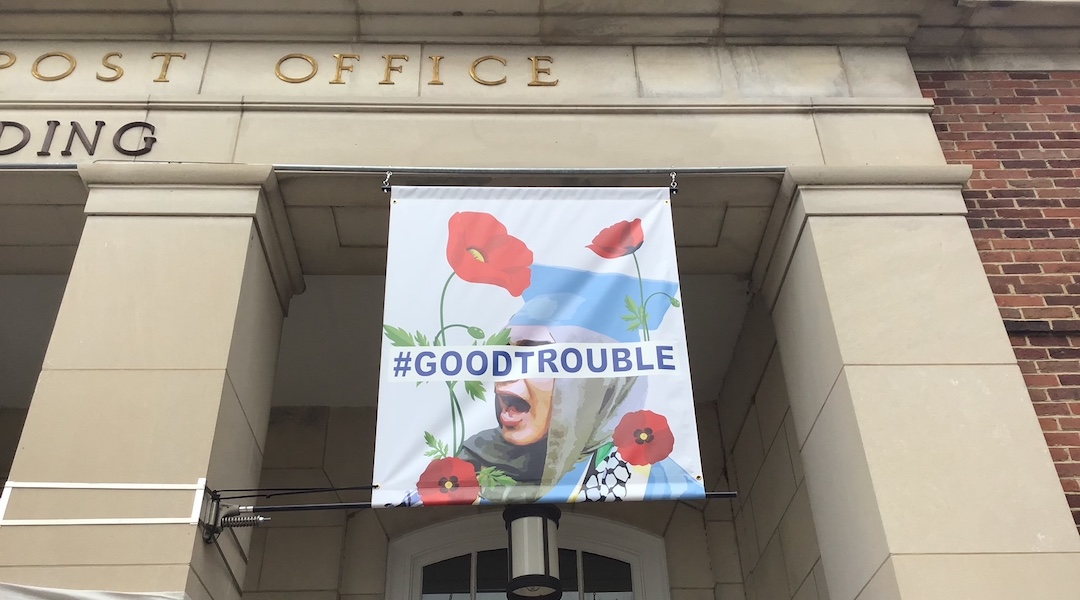A Lost Chapter From the Life of Oz
If you’ve read Amos Oz’s powerful new memoir, “A Tale of Love and Darkness,” in English, you missed something. I’m not referring to the “something” that is “lost in translation,” those poetic nuances that will not migrate from Hebrew to English. I mean, you missed an entire chapter.
You wouldn’t know this, because the English edition doesn’t indicate that it is both a translation and an abridgement. A number of chapters were shortened, but only one — Chapter Five — disappeared altogether. This is a shame and ironic, because Chapter Five shows an impassioned, even agitated Oz airing a pet peeve: the abuse of novelists by their readers. For anyone interested in what an outstanding writer has to say about how we should, and should not, treat a work of fiction, the chapter is indispensable reading.
When I stumbled upon the deletion, I thought it might have something to do with the same editorial advice Richard Rodriguez received, but rejected, prior to the publication of his classic memoir, “Hunger of Memory.” Rodriguez was told that his polemical passages against affirmative action and bilingualism disrupted the narrative, and that they might alienate readers who were primarily interested in the story of his rise from humble immigrant origins to literary fame.
Rodriguez’s editors may have been right that the memoir would flow more gracefully as pure autobiography, without the editorializing. Nevertheless, the book we know as “Hunger of Memory” gives us Richard Rodriguez as he wished to present himself. Not only did it become a huge seller, but it also preserves for us something of Rodriguez’s state of mind at the time, and why should his ambivalence about being an “ethnic” writer be blotted out of his self-portrait?
My purpose here is not to speculate about the disappearance of Oz’s chapter, but to review what the Israeli novelist has to say to his readers and to all lovers of literature.
Oz has much to say about “the bad reader.” This is the person who pursues the secrets of the novelist rather than the secrets of the novel. The bad reader wants to know “the story behind the story.” If Dostoevsky gives us a man who robs and murders an old woman, the bad reader is sure that Dostoevsky himself must have been implicated, if only through private fantasies, in that sordid activity. If Nabokov gives us a pedophile, it is tantamount to a confession of pedophilia. And how, the bad reader wonders, could Sophocles possibly have manufactured such a vivid story of incest and patricide without the benefit of some personal experience along those lines?
If Oz’s criticism seems exaggerated, we need only recall the modus operandi of today’s “author interview.” If we imagine, for a moment, Sophocles being interviewed on afternoon television, don’t we fully expect to see an audience of wide-eyed fans clutching their complimentary, signed copies of “The Oedipus Cycle” as they wait for the hostess to pop the big question: “So, Mr. Sophocles, this is pretty racy stuff… and I’ve got to ask, why is your father so hard to track down, and is it true that you’re still living at home with Mom?”
Oz finds the media guilty of conspiracy to ruin reading. More than once, he found himself up against the television wall of courteous voyeurism: “And perhaps, Mr. Oz, you will agree to tell us, in your own words…” what this novel is “really about,” and which one of those characters is “actually” your wife, and what is “really” behind the sexual affair of X and Y in your last book?
When the drawing of parallels to the author’s life is completed, the interrogation about his “bottom line” begins. “They come to take my message from me, dead or alive,” Oz writes. Invoking “the right of the public to know,” interviewers want him to identify the message, the moral and the political cargo his fiction conveys to the reader. Perhaps it is “The occupation corrupts,” or “Love triumphs,” or “The minorities are exploited.” Both the bad reader and the gasping interviewer share a “righteous puritanical hatred for creativity, for discovery, for obfuscation and exaggeration, for the games of courtship, for the ambiguous, the musical and the Muse, for the imagination itself.”
Pretty strong stuff? Oz is just warming up. In the most unforgettable passage of his invisible chapter, he likens the bad reader to “a psychopathic lover” who strips off his victim’s skin, impatiently removes the flesh, dismantles her skeleton, “and at the end — when he is filleting her bones between his crude yellow teeth — only then does he finally attain his satisfaction: that’s that. Now I’m really, really inside. I’ve arrived.”
The metaphor of “the psychopathic lover” forces us to consider the reader’s desire to control and possess a work of art, as if that were possible — as if anyone, even the artist, could enjoy such power. Oz sees a nihilistic urge at work in “the bad reader,” whose sole aim is to prove that, in the end, the characters in a story are no more than representations of the author and his relatives and friends and neighbors, doing the same mundane things that everyone else does — nothing extraordinary or mysterious — because in reality, “everyone is the same.” Bad readers convince themselves that any work of fiction will boil down to something utterly familiar, just as all the characters on a computer keyboard are reduced, in their little binary world, to a bunch of zeros and ones.
Who, then, is the good reader? The good reader is the one who understands that the real distance to be covered is not the gap between the text and the writer, but the gap between the text and the reader. The question is not, how do I find Dostoevsky in Raskolnikov? It is, instead, how do I find myself in Raskolnikov? And when I seek myself there, I share something with other private voyagers, as Oz explains: “Raskolnikov might sweeten a little the shame and the loneliness of the inner dungeon to which all of us are confined throughout our lives.”
The questions and criticisms that Amos Oz raises about the art of reading fiction are not new ones. They are as old as the novel. They help explain why some authors avoid public interviews altogether, knowing they will be asked to strip their work and themselves in order to satisfy “the public’s right to know,” and why others protect themselves through urbane deceptions. They reflect the basic operating procedure of democratic culture, which seats the sophisticated and the naive reader at the same table.
And they bring to mind E.M. Forster’s great comparison of history and fiction. History is a world of documented action; it gives us very little insight into people’s real happiness and misery, which are secret. But in the world of fiction, the author gives us access to the undocumented, innermost world of the individual. Forster said, “Human nature has its best chance in the novel.” Oz begs us not to blow it.
A message from our CEO & publisher Rachel Fishman Feddersen

I hope you appreciated this article. Before you go, I’d like to ask you to please support the Forward’s award-winning, nonprofit journalism during this critical time.
We’ve set a goal to raise $260,000 by December 31. That’s an ambitious goal, but one that will give us the resources we need to invest in the high quality news, opinion, analysis and cultural coverage that isn’t available anywhere else.
If you feel inspired to make an impact, now is the time to give something back. Join us as a member at your most generous level.
— Rachel Fishman Feddersen, Publisher and CEO






















